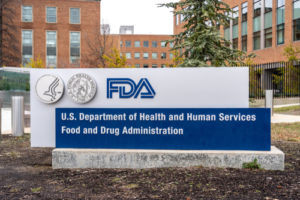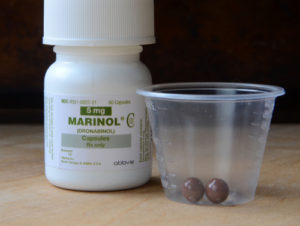What's On This Page?
ToggleToday I was reminded about the special FDA regulations required for dietary supplements. Language is controlled. What happened was an Amazon representative phoned me to tell me that one word describing my sleep formula implied it was for the treatment of disease! That word was “aid” as in the term “sleep aid” which was on the Amazon description page. They don’t like the phrase because it implies treatment of “insomnia” which is considered a “disease.”
In the USA, supplements are not allowed to treat diseases, and the wording needs to be very carefully crafted such that a disease is not implied. So my product was deleted for several days until I reworded the description. Kind of ridiculous, but I play by the rules so I removed the word “sleep aid.”
The situation was an ‘eye roll’ for me, and it’s not the first time the big guys make me re-word something in my website. It kind of made me want to tell you things… let you know more about the secrets of selling supplements. You can’t say what you want to! The language we use is heavily controlled and has been for years.
According to FDA regulations and policies, food and dietary supplements are only allowed to make structure or function claims. If you’re interested to learn about the specific structure-function claims, CLICK HERE.
Disease claims are no longer allowed but they used to be. We used to be able to say our sleep formula will help you with insomnia, or our joint formula will help you with arthritis, etc. But that is not allowed anymore. The regulations changed a long time ago, under someone’s administration (I forget who), but it suddenly became ‘illegal’ to make a disease claim for a supplement! Vitamins aren’t allowed to list what diseases they can fix anymore. No one goes to jail, but we may get a warning letter, fined if we don’t oblige them, or potentially shut down if there are egregious claims made.

Here’s why: The Food and Drug Administration’s job is to “approve” a drug for a specific indication. The FDA works for pharmaceutical companies, and evaluates clinical trials for medications, not for dietary supplements. If a dietary supplement company makes a claim that only a drug should make (ie My supplement helps with hypertension) then the FDA compliance officer finds out and sends you letters to stop making false or misleading claims (even if your supplement DOES help with hypertension).
It’s just not allowed to be stated that way. Supplements can however, “support already healthy blood pressures” and that’s how you have to state the words on your website or other selling platforms like Amazon. You probably didn’t know that.
From now on consider how supplement makers have to talk to you. It’s only with structure/function claims. If they claim their product treats a disease, that tells you they don’t know what they’re doing, or they’re intentionally trying fluff up their product to make a sale. Good supplement sellers know how to talk in code. Good supplement makers abide by the rules. Those who make inappropriate disease claims either don’t know, or don’t care about laws, and if that’s the case, you should be shopping elsewhere.

A health claim like “this supplement treats insomnia” is not allowed because it implies explicit use of the supplement for a specific disease called “insomnia” and disease claims are not allowed. It’s a little annoying, I know but that’s the way it is. Supplement makers have learned to talk in code and it sounds something like this: Such and such supplement “supports healthy circadian rhythms” or “this product supports relaxation.” We keep the words controlled such that there is not a mention of a disease name. You could easily mentally insert insomnia for “relaxation” but the former is a diagnosable disease.
Remember, the world only allows “disease claims” for over-the-counter or prescribed medications. And that is because it requires full agreement from the scientific community which is impossible to get for herb and vitamins. More specifically, it requires the Food and Drug Administration to “approve” the compound for a specific indication, such as insomnia, anxiety, arrhythmias, lupus, rheumatoid, and so forth (diseases only).
Therefore, only drugs are FDA-approved, and dietary supplements are not. The FDA works for pharmaceutical companies, and evaluates clinical trials for medications. They do not work for supplement sellers, herbalists or vitamin makers.
Could an herb garner FDA approval? Sure, it happens sometimes. A company takes an herbal ingredient, changes a chemical moiety on one end of it, and it becomes a new synthetic entity and FDA approved. The most famous, or rather infamous example is marijuana, a natural herb that is not FDA approved. The prescription drug called Marinol® however, is FDA approved as a medication that can be dispensed from pharmacies legally. It is similar in most ways to plain old pot, but has a slight alteration to its chemical structure, therefore it is able to garner a patent. 
Sometimes the dosage changes. For example, the B vitamin folate (or more specifically “5-MTHF which is biologically active) is a natural supplement that sellers put in their B complex because it “supports a healthy mood.” The FDA approved version of folate called Deplin® is available in incredibly high dosages like 7.5 mg and 15mg! The drug version is sold for the indication of depression. It treats that disease.
So in short, Deplin treats depression, but the vitamin 5-MTHF (same thing) is for a “healthy mood.”
(Since language is controlled, supplement makers can’t say 5-MTHF treats depression).
Dietary supplements -even the best ones- are not commonly evaluated through rigorous clinical trials because that takes millions of dollars, coordination of universities, laboratories, physicians and other staff, and hospitals throughout the region, as well as willing participants! So supplement formulators rely on centuries of anecdotal evidence. We select ingredients for custom formulas based upon the clinical trials for a very specific ingredients (for example curcumin, or hawthorn or collagen peptides), however, clinical trials do not occur on the finished formula.
Now I will list a 4 examples of what a supplement maker should NOT say, and how to say it better, and I’m sure you will agree with me that this is ridiculous!
Example 1 Supplements for Arthritis
“These pills relieve the pain of osteoarthritis and tendonitis.”
That statement is bad because “arthritis” is a disease name and only drugs treat it.
If a drug like Celebrex makes this claim, it’s totally okay because their medication is effective for those diseases, and the clinical trials prove it. But someone selling their herbal cannot say it.
Supplement sellers say this “supports healthy joints, cartilage and tendons.*”
Example 2 Supplements for Cognitive Health and Brain Disorders
“These pills treat dementia and Alzheimer’s disease.”
That statement is bad for supplement makers because both “dementia” and “Alzheimer’s” are disease names, thus it is a disease claim. Again, the FDA only allows this type of language to be applied to pharmaceuticals. Herbal supplement makers are not permitted to make disease claims even if their products do help with all that.
We’d have to say that our pills are “nootropic” or that they “support a healthy brain.*”
We can also say “this formula supports healthy cognitive function or brain power.*
HERE is an important article I wrote about memory and how medications interfere with good recall.
Example 3 Vitamin D language is even controlled!
“Vitamin D can help with respiratory infections or Hashimoto’s thyroiditis.”
That statement is bad because Hashimoto’s thyroiditis is treated by immunosuppressants, and prescriptions. The condition is often associated with poor intestinal permeability, along with infection and other potential contributing factors. Someone selling a vitamin or dietary supplement, or even a digestive enzyme which helps with gut health can never make the claim that it helps with Hashi!
Supplement sellers would say their product “supports healthy immune function, and healthy digestive function.*
Example 4 of How Our Language is Controlled!
“Such and such pills cure insulin resistance and diabetes.”
Nope! Diabetes is a disease and as such only drugs like metformin or insulin can help it. But a supplement formula -no matter how good it is – could never make that claim.
We’d state that our formula “supports a healthy pancreas” hoping you can read between the lines.*
Do you see how it all works now?
Makers are muzzled! Our language is controlled. All the semantics about wording and what you can and can’t say about a supplement leads to confusion in the marketplace for people who just want to get well. The lack of clarity due to language control may cause a person to take supplements that are all wrong because you don’t know what the supplement is intended for, because everyone is talking in code!
Here’s one last example. How does the phrase “liver antioxidant” often seen on liver-supportive supplements help a person to know if it’s best for liver cirrhosis from alcoholism, non-alcoholic fatty liver, recovery from hepatitis A or peroxynitrite formation? That phrase “liver antioxidant” doesn’t say much, however it also doesn’t mean it’s wrong. The vagueness due to these regulations leave people in the dark, essentially guinea pigs doing an experiment on yourself as you try all kinds of liver supplements. It wastes time, and gets expensive!
I wish I had the power to change the rules. I’ve been writing about supplements for 30 years! It’s just controlled, controlled, controlled!
Looking at this whole situation from the other side, I will tell you this much… I have seen unscrupulous supplement sellers make boatloads of money off consumers so maybe the regs aren’t always bad. It occurs when bad people start pitching their new exotic weed extract for the purpose of increasing stamina, bust size, or the length of a certain male appendage! In cases such as this, I’m glad the FDA steps in and stops the stupidity, controls the ability for them to make ridiculous claims and begins holding these companies accountable!
I hope this article has helped you understand more about claims that are permitted and why you have to read between the lines when trying to discern what a supplement’s intended use is.
In keeping with FDA Compliance 😉 I’m going to say it…
The information on this page (and website) has not been evaluated by the Food & Drug Administration or any other medical body. I do not aim to diagnose, treat, cure or prevent any illness or disease. Information is shared for educational purposes only. You must consult your doctor before acting on any content on this website, especially if you are pregnant, nursing, taking medication, or have a medical condition.

Suzy Cohen, has been a licensed pharmacist for over 30 years and believes the best approach to chronic illness is a combination of natural medicine and conventional. She founded her own dietary supplement company specializing in custom-formulas, some of which have patents. With a special focus on functional medicine, thyroid health and drug nutrient depletion, Suzy is the author of several related books including Thyroid Healthy, Drug Muggers, Diabetes Without Drugs, and a nationally syndicated column.
